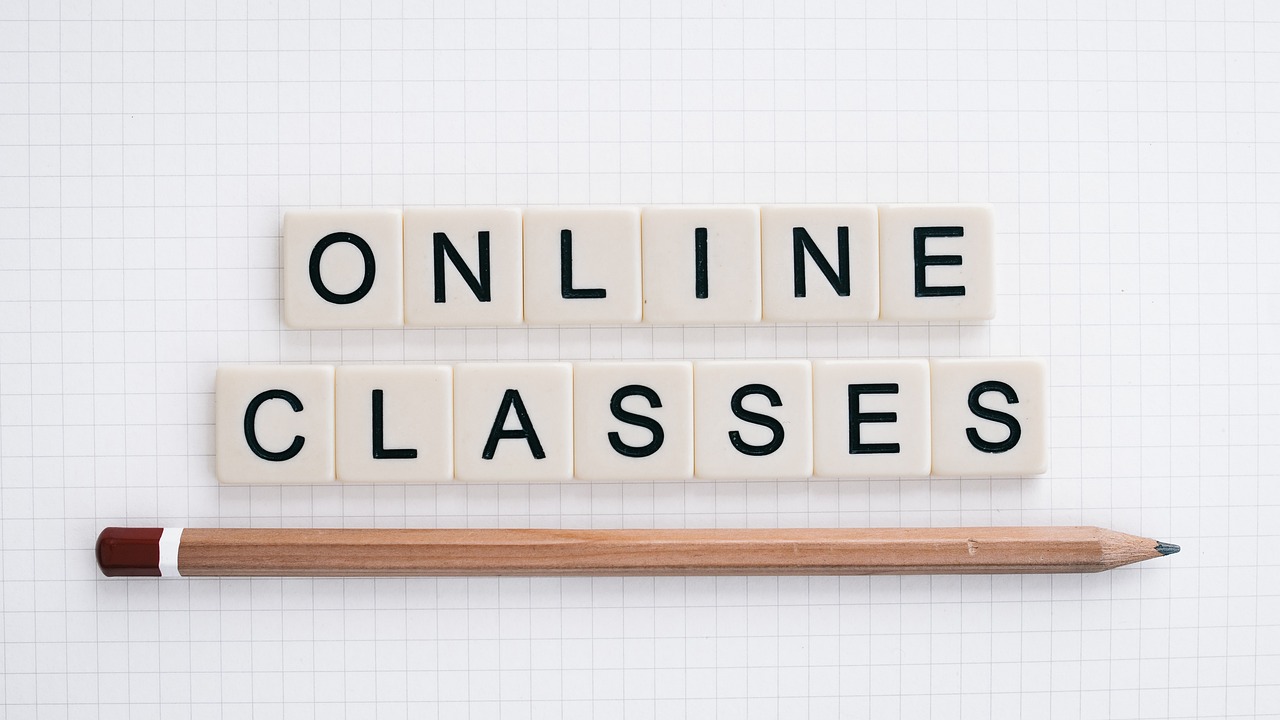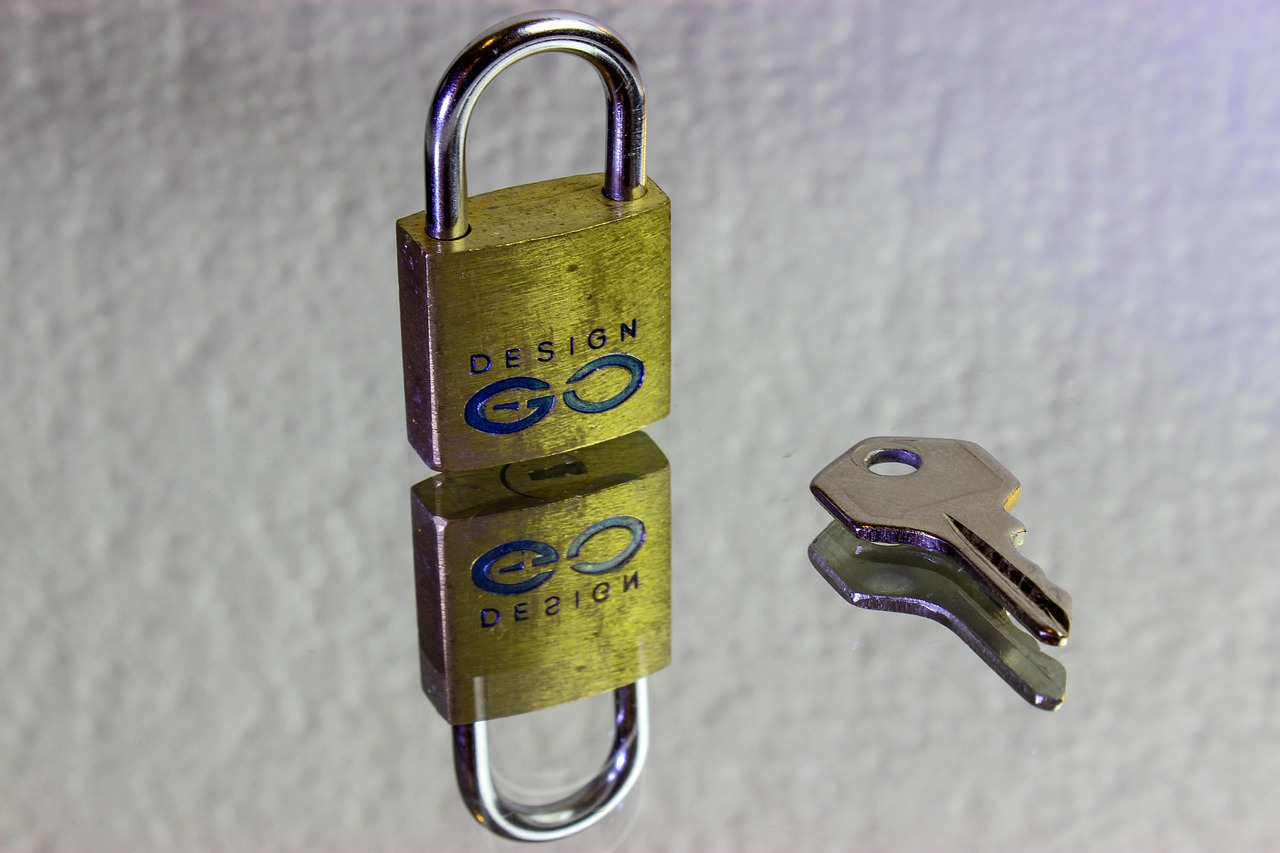How to Secure Your Personal Relationships Online
In today's digital age, where interactions often happen through screens rather than face-to-face, securing your personal relationships online is more important than ever. Just think about it: how many times have you shared a moment on social media, only to regret it later? With the click of a button, your private life can become public, and that can lead to misunderstandings, conflicts, or even worse—breaches of trust. The good news is that with a few essential strategies, you can protect your personal connections without sacrificing the intimacy that makes them special.
First and foremost, it’s crucial to understand the concept of online privacy. This involves being aware of what information you share and with whom. Oversharing on platforms like Facebook or Instagram can expose you to risks that might seem trivial at first but can escalate quickly. For instance, sharing your location or personal details can lead to unwanted attention or even harassment. So, how can you navigate this digital landscape while keeping your relationships intact?
One of the keys to securing your online relationships is selecting the right communication tools. Not all messaging apps are created equal, and some prioritize user privacy much more than others. Imagine having a conversation in a crowded room where everyone can hear you—wouldn’t you prefer a private booth instead? This analogy perfectly illustrates the difference between encrypted and non-encrypted communication. By choosing apps that offer end-to-end encryption, you ensure that only you and the person you’re talking to can read your messages, keeping your conversations confidential.
Online privacy is crucial for maintaining personal relationships. It’s not just about keeping secrets; it’s about creating a safe space where both parties feel comfortable sharing their thoughts and feelings. When you protect your personal information, you’re also protecting the integrity of your relationships. This means being selective about what you post online, who you share your information with, and regularly reviewing your privacy settings on social media platforms.
In the digital world, the tools you use can make all the difference. Opt for communication platforms that respect your privacy. For example, apps like Signal and WhatsApp provide robust security features that help keep your conversations private. By using these tools, you can foster deeper connections without the fear of prying eyes. Remember, it’s not just about having a conversation; it’s about having a secure one.
End-to-end encryption is a technology that ensures that only you and the person you’re communicating with can read the messages exchanged. Think of it as a secret code that only you two understand. This means that even if someone intercepts the messages, they won't be able to decipher them. Understanding how this works is essential for anyone looking to maintain confidentiality in their personal conversations. It’s like having a lock on your diary—only you and your closest friends have the key.
There are several messaging apps that offer end-to-end encryption. Here’s a quick comparison to help you choose the best fit:
| App Name | Features | Security Measures |
|---|---|---|
| Text, voice, video calls | End-to-end encryption, two-step verification | |
| Signal | Text, voice, video calls | Open-source encryption, disappearing messages |
| Telegram | Text, voice, video calls | Secret chats with end-to-end encryption |
Using non-encrypted communication methods poses significant risks. Imagine sending a postcard with your deepest secrets written on it—anyone could read it! This is what happens when you use unsecured platforms. Without encryption, your messages can be intercepted, leading to privacy breaches that can harm your relationships. It’s essential to recognize these dangers and take proactive steps to protect yourself.
Setting clear boundaries in online interactions is vital for healthy relationships. Just like in the physical world, where you wouldn’t let someone intrude on your personal space, the same applies online. Communicate your limits clearly and respect others’ boundaries as well. This mutual understanding fosters trust and ensures that both parties feel safe and valued in the relationship.
Awareness of red flags in online relationships can prevent potential harm. Just as you might notice when a friend is acting strangely, you should also be alert to warning signs in your digital interactions. Common red flags include excessive jealousy, controlling behavior, or a lack of respect for your privacy. By recognizing these signs early on, you can protect yourself from manipulative behaviors that could jeopardize your personal connections.
Manipulation can undermine personal relationships. Some key signs that may indicate manipulative behavior include:
- Constantly questioning your decisions
- Making you feel guilty for not responding quickly
- Withholding affection or communication as punishment
Being aware of these behaviors empowers you to address issues early on, preventing further damage to your relationship.
Online harassment can significantly impact personal relationships. If you find yourself facing harassment, it’s crucial to take action. Document the incidents, block the harasser, and report them to the platform. Remember, you are not alone, and seeking support from friends or professionals can help you navigate these challenging situations. Fostering a safer online environment is essential for maintaining healthy relationships.
Q: How can I improve my online privacy?
A: Regularly update your privacy settings, be mindful of what you share, and use secure communication tools.
Q: What should I do if I notice red flags in my online relationship?
A: Trust your instincts. Communicate your concerns and set boundaries. If the behavior continues, consider distancing yourself.
Q: How can I report online harassment?
A: Document the harassment, block the individual, and report them to the platform. Seek support from friends or professionals if needed.

Understanding Online Privacy
In today’s digital world, online privacy has become more than just a buzzword; it’s a necessity. With the rise of social media and instant communication, sharing personal information has become second nature for many. However, this oversharing can lead to significant risks. Imagine posting a lovely picture of your family vacation, only to find out that someone has used that information to track your movements. Scary, right? That’s why understanding and protecting your online privacy is crucial for maintaining personal relationships.
When we talk about online privacy, we’re referring to the right to keep your personal information safe from prying eyes. This includes everything from your social media profiles to your browsing history. The internet can be a wild west of data, where your information can be harvested, sold, or even misused. So, what are the potential risks associated with oversharing? Here are a few to consider:
- Identity Theft: Sharing too much personal information can make you an easy target for identity thieves.
- Stalking: Publicly available information can be used by stalkers to track your movements and habits.
- Reputation Damage: Oversharing can lead to misunderstandings or misinterpretations that could harm your reputation.
These risks highlight the importance of being mindful about what you share online. It’s not just about the content you post but also about the audience you share it with. Are your posts visible to the public, friends, or just a select few? Each setting has its own implications for your privacy.
Moreover, it’s essential to regularly review your privacy settings on various platforms. Social media sites often change their policies, and what was once private can become public without your knowledge. Take a moment to dive into the settings and ensure that your information is only shared with those you trust. Think of it as locking your front door; you wouldn’t leave it wide open for anyone to walk in, would you?
In conclusion, understanding online privacy is about being proactive. It involves knowing what information is out there, who can access it, and how to safeguard it. By taking these steps, you can foster personal relationships without compromising your security. Remember, it’s not just about keeping your information safe; it’s about creating a space where you can connect meaningfully with others without fear of intrusion.

Choosing Secure Communication Tools
In this digital age, the way we communicate has transformed dramatically. With just a few taps on our smartphones, we can connect with friends, family, and partners from anywhere in the world. However, this convenience comes with its own set of challenges, particularly when it comes to security. Choosing secure communication tools is not just a matter of preference; it’s essential for protecting your personal relationships. Imagine sending a heartfelt message only to find out it was intercepted by someone you didn’t intend to share it with. Scary, right? That’s why it’s crucial to select platforms that prioritize your privacy and keep your conversations safe.
When evaluating communication tools, look for those that offer end-to-end encryption. This feature ensures that only you and the person you're communicating with can read the messages. Even the service provider is locked out, which is a comforting thought when sharing sensitive information. But how do you know which apps provide this level of security? Here are a few factors to consider:
- Encryption Standards: Check if the app uses strong encryption protocols like AES-256. The higher the encryption standard, the better your data is protected.
- User Control: Look for tools that allow you to control who can see your information and messages. Features like disappearing messages can add an extra layer of security.
- Reputation: Research the app's reputation. Are there any known security breaches? User reviews can provide insight into how well the app protects your data.
Let’s dive deeper into some popular encrypted messaging apps that have gained traction for their security features. Apps like Signal and WhatsApp are often recommended due to their robust encryption methods. Signal, for instance, is open-source, meaning its code can be reviewed by anyone, ensuring transparency in its security practices. On the other hand, WhatsApp, while widely used, has faced scrutiny over its data-sharing policies with parent company Meta. Therefore, it’s essential to weigh the pros and cons of each option based on your specific needs.
However, not all communication tools are created equal. Using non-encrypted platforms like standard SMS or some social media messaging services can expose your conversations to potential interception. Think of it like sending a postcard instead of a sealed letter. Anyone along the route can read what you’ve written. This risk is heightened when sharing personal information, photos, or even your location. By opting for secure communication tools, you’re not just safeguarding your messages; you’re also protecting your relationships from unnecessary strain caused by privacy breaches.
In conclusion, choosing secure communication tools is a fundamental step in ensuring your personal relationships thrive in the digital landscape. By prioritizing platforms that offer end-to-end encryption and respecting your privacy, you can maintain meaningful connections without compromising your security. Remember, it’s not just about what you say but how you say it and who can hear it. So, take the time to research and select the right tools that keep your conversations safe and sound.
1. What is end-to-end encryption?
End-to-end encryption is a method of data transmission where only the communicating users can read the messages. No third party, including the service provider, has access to the encryption keys.
2. Are all messaging apps secure?
No, not all messaging apps offer the same level of security. It's important to research and choose apps that provide strong encryption and have a good reputation for privacy.
3. Can my messages be intercepted?
Yes, if you use non-encrypted communication methods, your messages can be intercepted by hackers or unauthorized parties. Using secure apps minimizes this risk.
4. What should I consider when choosing a communication tool?
Consider factors such as encryption standards, user control over data, and the app's reputation. These elements will help you choose a secure platform for your communications.

End-to-End Encryption Explained
When it comes to securing your personal conversations, end-to-end encryption is like having a private vault for your messages. Imagine sending a letter to a friend; you seal it in an envelope that only they can open. In the digital world, end-to-end encryption works similarly. It ensures that the only people who can read your messages are you and the person you're communicating with. No one else—be it hackers, government agencies, or even the app providers—can access the content of those messages.
So, how does this magical process actually work? Well, it starts with encryption keys. When you send a message, it gets scrambled into an unreadable format using a unique key. Only the recipient has the corresponding key to unscramble it and read your message. This process is what keeps your conversations private and secure. The beauty of end-to-end encryption lies in its simplicity and effectiveness, ensuring that your personal information remains just that—personal.
But why is this level of security so crucial in today's digital landscape? Well, consider the following:
- Protection from Interception: Without end-to-end encryption, your messages can be intercepted during transmission, leaving them vulnerable to prying eyes.
- Data Privacy: In an age where data breaches are common, having your conversations encrypted means that even if someone accesses the data, they won't be able to decipher it.
- Trust Building: Knowing that your messages are secure fosters trust in your relationships, allowing for more open and honest communication.
Many popular messaging apps, such as WhatsApp and Signal, utilize end-to-end encryption to provide users with peace of mind. However, it’s essential to remember that not all apps prioritize this feature. Therefore, it’s crucial to do your research and choose platforms that value user privacy. But, be cautious—while end-to-end encryption offers a strong layer of protection, it’s not foolproof. Always stay vigilant about other security measures, like using strong passwords and being aware of phishing attempts.
In summary, end-to-end encryption is a vital tool for anyone looking to secure their personal relationships online. It acts as a protective barrier that keeps your conversations safe from unwanted intrusions, allowing you to connect with others without fear of compromising your privacy. As we navigate through the complexities of digital communication, understanding and utilizing this technology can make all the difference in maintaining meaningful and secure relationships.
Q1: What is end-to-end encryption?
A1: End-to-end encryption is a method of data transmission where only the communicating users can read the messages. The data is encrypted on the sender's device and only decrypted on the recipient's device.
Q2: Which apps use end-to-end encryption?
A2: Popular apps that utilize end-to-end encryption include WhatsApp, Signal, and Telegram. Always check the app's privacy policy for details on their encryption practices.
Q3: Can end-to-end encryption be hacked?
A3: While end-to-end encryption significantly enhances security, no system is completely immune to hacking. It's essential to combine it with other security practices.
Q4: What should I do if I suspect my messages are being intercepted?
A4: If you suspect that your messages are being intercepted, immediately switch to a secure messaging app with end-to-end encryption, change your passwords, and consider enabling two-factor authentication.

Popular Encrypted Messaging Apps
In today's digital landscape, choosing the right messaging app is crucial for maintaining secure and private conversations. With so many options available, it can be overwhelming to decide which app best suits your needs. Fortunately, several popular encrypted messaging apps have emerged, each offering unique features that prioritize user privacy and security. Let's dive into some of the most reputable options available today.
WhatsApp is one of the most widely used messaging apps globally, boasting over two billion users. It employs end-to-end encryption by default, meaning that only you and the person you're communicating with can read what is sent. WhatsApp also offers features like voice and video calls, group chats, and media sharing, all while ensuring your conversations remain private.
Signal is often praised by security experts for its robust privacy features. This open-source app utilizes end-to-end encryption for all communications, including text messages, voice calls, and video calls. Signal’s user-friendly interface and commitment to user privacy make it a top choice for those who prioritize security. Additionally, Signal does not store any metadata related to your conversations, which further enhances your privacy.
Telegram offers a unique twist with its Secret Chats feature, which provides end-to-end encryption for messages. However, it's important to note that regular chats on Telegram are not encrypted by default. This app is known for its speed and ability to handle large groups, making it ideal for communities and organizations. Users can also send self-destructing messages, adding an extra layer of security.
iMessage, available exclusively on Apple devices, is another popular choice. It automatically encrypts messages sent between Apple users, ensuring that your conversations are secure. iMessage also allows users to send photos, videos, and even money, all while keeping privacy in mind. Its integration with other Apple services makes it a convenient option for iPhone users.
Finally, Viber is a lesser-known but effective encrypted messaging app. It offers end-to-end encryption for all messages and calls, along with features like stickers, group chats, and video calls. Viber also allows users to send messages to non-Viber users via SMS, although these messages are not encrypted.
When choosing an encrypted messaging app, consider factors such as usability, the platform's security features, and whether your contacts are already using the app. The right choice will depend on your specific needs and how much you value privacy in your communications. By opting for one of these secure messaging apps, you can ensure that your personal relationships remain protected in this digital age.
- What is end-to-end encryption?
End-to-end encryption is a method of data transmission where only the communicating users can read the messages. This means that even the service provider cannot access the content of the messages.
- Are encrypted messaging apps completely secure?
While encrypted messaging apps provide a higher level of security, no system is entirely foolproof. Users should still practice caution and avoid sharing sensitive information.
- Can I use encrypted messaging apps for group chats?
Yes, most encrypted messaging apps, such as WhatsApp and Signal, support group chats while maintaining encryption for all participants.
- Do I need to pay for encrypted messaging apps?
Many popular encrypted messaging apps are free to use, although some may offer premium features for a fee.

Risks of Non-Encrypted Communication
This article explores essential strategies for protecting your personal relationships in the digital age, emphasizing privacy, communication, and safety to ensure meaningful connections without compromising security.
Online privacy is crucial for maintaining personal relationships. This section discusses the importance of safeguarding personal information and the potential risks associated with oversharing on social media platforms.
Selecting the right communication tools can enhance security in personal relationships. Here, we examine various apps and platforms that prioritize encryption and user privacy for safer interactions.
End-to-end encryption ensures that only the communicating users can read messages. This section explains how it works and why it's essential for maintaining confidentiality in personal conversations.
Several messaging apps offer end-to-end encryption. This subheading reviews the most popular options, highlighting their features and security measures to help users choose the best fit.
In today's digital landscape, the risks of non-encrypted communication are more significant than ever. When you opt for platforms that don't provide encryption, you expose your personal conversations to a myriad of threats. Imagine sending a postcard in the mail; anyone can read it, and there’s no way to ensure that only the intended recipient sees the message. Similarly, non-encrypted messages can be intercepted by hackers, government agencies, or even nosy individuals.
One of the most alarming risks is the potential for identity theft. If sensitive information such as your address, phone number, or financial details is sent through non-secure channels, it can fall into the wrong hands. This can lead to unauthorized access to your accounts, fraudulent transactions, and a whole lot of stress. Additionally, personal conversations can be manipulated or misinterpreted, leading to misunderstandings and conflicts in relationships.
Another critical concern is the lack of accountability. Without encryption, your messages are stored on servers that can be accessed by anyone with the right skills or intentions. This means that private discussions can be leaked or used against you. The emotional toll this can take on relationships is immense, as trust is eroded when one party feels their privacy has been compromised.
Here are some specific risks associated with non-encrypted communication:
- Data Interception: Messages can be intercepted during transmission, allowing unauthorized access to your conversations.
- Data Breaches: Non-encrypted platforms are more susceptible to data breaches, exposing your personal information to the public.
- Increased Vulnerability: Non-encrypted communications leave you vulnerable to phishing attacks, where malicious actors may impersonate trusted contacts.
In conclusion, while it might seem convenient to use non-encrypted platforms for everyday communication, the risks far outweigh the benefits. Prioritizing secure communication tools not only protects your personal information but also fosters trust and safety in your relationships. Always remember, in a world where information is king, keeping your conversations private is the best way to ensure that your personal relationships remain strong and secure.
Awareness of red flags in online relationships can prevent potential harm. This part outlines common warning signs to watch for, ensuring individuals can protect themselves from manipulative behaviors.
Manipulation can undermine personal relationships. Here, we identify key signs that may indicate manipulative behavior, empowering individuals to recognize and address these issues early on.
Online harassment can significantly impact personal relationships. This section offers strategies for addressing and reporting harassment, fostering a safer online environment for everyone involved.
Q: What is end-to-end encryption?
A: End-to-end encryption is a method of data transmission where only the communicating users can read the messages. Even the service provider cannot access the content.
Q: Why is online privacy important in personal relationships?
A: Online privacy helps maintain trust and security in relationships by protecting personal information from unauthorized access and potential misuse.
Q: How can I tell if a messaging app is secure?
A: Look for features like end-to-end encryption, a good reputation for privacy, and transparency in their data handling practices.
Q: What should I do if I experience online harassment?
A: Document the harassment, block the individual, and report the behavior to the platform. It's also helpful to seek support from friends or professionals.

Establishing Boundaries Online
In the fast-paced world of digital communication, establishing boundaries online is not just important—it's essential. Imagine your personal space as a cozy room filled with your favorite things. Now, imagine someone barging in without knocking. Uncomfortable, right? That’s how it feels when our online boundaries are violated. To maintain healthy relationships, both offline and online, it’s crucial to communicate your limits clearly. Not only does this foster respect, but it also helps avoid misunderstandings that can lead to conflicts.
First and foremost, it’s vital to recognize what your boundaries are. Are you comfortable sharing personal details about your life on social media? Do you prefer to keep certain conversations private? Understanding your own comfort levels will allow you to articulate them to others effectively. For instance, if you feel uneasy about sharing your location or personal schedule, let your friends know. A simple message can go a long way in preventing future discomfort.
Next, consider how you communicate these boundaries. Using clear and direct language is key. You might say something like, “I value my privacy and prefer not to discuss my personal life on social media.” This approach not only sets the tone but also gives others a chance to understand and respect your wishes. Additionally, it’s important to check in with others about their boundaries too. Open communication can create a safe space for everyone involved, allowing for a mutual understanding of what is acceptable.
To further illustrate the importance of boundaries, consider the following scenarios:
- Scenario 1: You receive a friend request from someone you barely know. Establishing a boundary here could mean declining the request or accepting it but limiting what they can see on your profile.
- Scenario 2: A friend frequently tags you in posts you’re not comfortable with. A gentle reminder about your preferences can help them understand your limits.
Moreover, boundaries can evolve over time. What feels comfortable today might change tomorrow. Thus, it’s essential to reassess your boundaries periodically and communicate any changes to those around you. This dynamic approach ensures that your relationships remain healthy and respectful.
Lastly, remember that establishing boundaries isn’t just about saying “no.” It’s also about creating a positive online environment where everyone feels safe and respected. Encourage your friends and family to set their own boundaries, fostering a culture of mutual respect. After all, when everyone respects each other's limits, personal relationships can thrive in the digital age.
Q1: Why are online boundaries important?
A1: Online boundaries help protect your privacy and maintain healthy relationships. They prevent misunderstandings and ensure that everyone involved feels respected.
Q2: How do I communicate my boundaries effectively?
A2: Use clear and direct language. Be honest about your comfort levels and don’t hesitate to remind others of your preferences if needed.
Q3: What if someone violates my boundaries?
A3: Address the issue directly with the person. Explain how their actions made you feel and reiterate your boundaries. If the behavior continues, consider distancing yourself from that individual.
Q4: Can boundaries change over time?
A4: Absolutely! Boundaries are personal and can evolve as you grow and change. Regularly reassess your limits and communicate any changes to those around you.

Recognizing Red Flags
In the vast landscape of online relationships, being able to recognize red flags is crucial for your emotional safety. Just like a warning sign on a road, these indicators can alert you to potential dangers before they escalate. So, what should you be on the lookout for? One of the most significant red flags is a partner's tendency to isolate you from your friends and family. This can start subtly, with them questioning your social interactions or expressing jealousy over your time spent with others. If you find yourself feeling guilty for wanting to maintain connections outside of your relationship, it’s time to step back and evaluate the situation.
Another warning sign is when communication becomes one-sided. Healthy relationships thrive on open and honest dialogue. If you notice that your partner frequently dismisses your feelings or dominates conversations, it may indicate a lack of respect and consideration for your emotions. This imbalance can lead to feelings of inadequacy and resentment over time, which can be detrimental to your mental health.
Additionally, be wary of individuals who pressure you for personal information too quickly. In the early stages of a relationship, it’s natural to share details about your life, but if someone is pushing you to divulge sensitive information like your address, financial details, or passwords, it’s a major red flag. Trust is built slowly, and anyone who rushes this process may have ulterior motives.
Moreover, keep an eye out for inconsistent behavior. If your partner frequently changes their story or avoids answering questions directly, it can indicate dishonesty. Trust your gut—if something feels off, it probably is. You deserve to be in a relationship where honesty and transparency are paramount.
Lastly, it’s essential to recognize the signs of manipulation. Manipulative individuals often use guilt, shame, or fear to control their partners. If you find yourself constantly apologizing or feeling responsible for your partner's emotions, it’s time to reassess the dynamic. Healthy relationships should uplift you, not leave you feeling drained or confused.
To summarize, recognizing red flags in online relationships is about being aware of your feelings and the behaviors of others. By trusting your instincts and establishing clear boundaries, you can protect yourself from potential harm. Remember, it’s always better to be cautious than to overlook warning signs in the name of love.
- What are some common red flags to look for in online relationships?
Common red flags include isolation from friends, one-sided communication, pressure for personal information, inconsistent behavior, and signs of manipulation.
- How can I address red flags with my partner?
Open communication is key. Express your concerns calmly and clearly, and observe how your partner responds. A healthy relationship should allow for these discussions.
- What should I do if I recognize red flags?
If you identify red flags, consider reevaluating the relationship. Trust your instincts, and don’t hesitate to seek support from friends or professionals if needed.

Signs of Manipulation
In the vast landscape of online relationships, recognizing manipulative behaviors can be a game-changer. Just like a magician who distracts you with one hand while performing tricks with the other, manipulators often use subtle tactics to control or influence their targets. So, how do you spot these red flags before they lead to emotional turmoil? Here are some key signs to watch for:
First and foremost, pay attention to excessive flattery. While compliments can be genuine, if someone is showering you with praise to the point of making you uncomfortable, it might be a tactic to lower your defenses. Think of it like a sweet-talking salesperson trying to make a sale—too much sugar can make you suspicious.
Another sign is the use of guilt-tripping. If someone makes you feel responsible for their happiness or well-being, it’s a red flag. For instance, if a friend constantly reminds you of their sacrifices for you, it’s time to reassess the balance in that relationship. Healthy relationships should be built on mutual respect and understanding, not obligation.
Moreover, manipulators often employ gaslighting—a form of psychological manipulation that makes you question your reality. If you find yourself doubting your own feelings or memories after conversations with someone, that’s a serious warning sign. It’s like being trapped in a funhouse mirror; everything seems distorted, and you can't trust what you see.
Additionally, be wary of someone who frequently plays the victim. If they constantly portray themselves as the one who is wronged, it can be a tactic to gain sympathy and control the narrative. They may divert attention from their own faults by making you feel sorry for them, thus keeping you emotionally invested.
Lastly, if you notice a pattern of isolating behavior, where someone encourages you to distance yourself from friends and family, it’s crucial to step back. Isolation can be a powerful tool for manipulation, as it makes you more reliant on the manipulator for emotional support. A healthy relationship should encourage connections with others, not stifle them.
Recognizing these signs early on can empower you to take action. Whether it’s setting boundaries, seeking advice from trusted friends, or even distancing yourself from the relationship, being aware is the first step toward protecting your emotional well-being. Remember, your feelings are valid, and you deserve relationships that uplift and support you, not ones that leave you feeling drained or confused.
Q: What should I do if I suspect someone is manipulating me?
A: The first step is to trust your instincts. If something feels off, consider discussing your feelings with someone you trust. Setting clear boundaries can also help you regain control in the relationship.
Q: How can I protect myself from emotional manipulation online?
A: Be aware of the signs of manipulation, such as guilt-tripping and gaslighting. Maintain open communication with your support network and prioritize your emotional well-being.
Q: Is it possible to salvage a relationship with someone who has manipulated me?
A: It depends on the situation. If the manipulator is willing to acknowledge their behavior and work on it, there may be a chance. However, if they continue to manipulate, it may be healthier to distance yourself.

Dealing with Online Harassment
Online harassment can feel like a dark cloud looming over your personal relationships. It's not just an inconvenience; it can significantly impact your emotional well-being and sense of safety. So, how do you navigate this tricky terrain? First and foremost, it's essential to recognize that you are not alone. Many people face online harassment, and there are effective strategies to combat it.
One of the first steps in dealing with online harassment is to document everything. Take screenshots of offensive messages, keep records of interactions, and note the dates and times of incidents. This documentation can serve as crucial evidence if you need to report the harassment to authorities or social media platforms. Remember, the more information you have, the better equipped you will be to take action.
Next, consider adjusting your privacy settings on social media platforms. Most platforms allow you to control who can see your posts, comment on them, or even send you messages. By tightening these settings, you can create a safer online environment. For example, you might choose to limit your audience to friends only or turn off comments altogether on sensitive posts. It’s your space, and you have the right to protect it.
If the harassment escalates, it’s crucial to report the behavior to the relevant platform. Most social media sites have policies against harassment and provide options to report abusive users. When reporting, include your documentation to support your claim. This will not only help you but also protect others who might be facing similar issues. Remember, platforms take these reports seriously, and your action can lead to the removal of harmful users.
Additionally, don’t hesitate to reach out for support. Talk to friends or family who can provide emotional backing. Sometimes, just sharing your experience can lighten the load. There are also numerous online communities and support groups dedicated to helping individuals who face online harassment. Engaging with others who understand your situation can be incredibly empowering.
In extreme cases, where harassment becomes threatening, it may be necessary to involve law enforcement. While it can feel daunting, remember that your safety is paramount. Many police departments now have protocols for handling online harassment, and they can guide you on the best steps to take. Don't underestimate the power of taking your concerns to the authorities if you feel threatened.
Lastly, practice self-care. Dealing with online harassment can be mentally exhausting. Engage in activities that bring you joy, whether that’s reading, exercising, or spending time with loved ones. Remember that your mental health is just as important as your physical safety, and taking time for yourself can help you regain your strength and resilience.
In summary, while online harassment can be a challenging issue to navigate, there are numerous strategies available to protect yourself and maintain your personal relationships. By documenting incidents, adjusting privacy settings, reporting abusive behavior, seeking support, and prioritizing self-care, you can reclaim your online space and foster healthier interactions.
- What should I do if I receive threatening messages online? Document the messages and report them to the platform and local authorities.
- Can I block someone who is harassing me? Yes, most social media platforms allow you to block users to prevent them from contacting you.
- Is online harassment a crime? Yes, depending on the severity and nature of the harassment, it can be considered a crime.
- How can I support someone who is experiencing online harassment? Listen to them, encourage them to document incidents, and help them report the behavior.
Frequently Asked Questions
- What is online privacy and why is it important?
Online privacy refers to the protection of personal information shared on the internet. It's crucial because it helps maintain the integrity of your personal relationships, ensuring that sensitive details don’t fall into the wrong hands. In a world where oversharing is common, safeguarding your information is essential to prevent misunderstandings and potential harm.
- How can I choose secure communication tools?
To choose secure communication tools, look for apps that prioritize encryption and user privacy. Features like end-to-end encryption ensure that only you and the person you're communicating with can read the messages. Popular options include WhatsApp, Signal, and Telegram, each offering unique features that enhance security.
- What is end-to-end encryption?
End-to-end encryption is a method of data transmission where only the communicating users can read the messages. Even the service provider cannot access the content, making it a vital feature for maintaining confidentiality in personal conversations. This ensures that your chats remain private and secure from prying eyes.
- What are the risks of using non-encrypted communication methods?
Using non-encrypted communication methods exposes you to significant risks, including data breaches and unauthorized access to your messages. Hackers can intercept unencrypted messages, leading to potential privacy violations and even identity theft. It's crucial to use secure platforms to protect your conversations.
- How can I establish boundaries in online relationships?
Establishing boundaries in online relationships involves clear communication about your limits and expectations. Be honest and direct when discussing what you are comfortable with. Respecting others' boundaries is equally important, as it fosters trust and understanding in your interactions.
- What are common red flags in online relationships?
Common red flags in online relationships include excessive jealousy, manipulation, and inconsistent communication. If someone is pressuring you for personal information or making you feel uncomfortable, it's essential to trust your instincts and reassess the relationship.
- How can I recognize signs of manipulation?
Signs of manipulation can include guilt-tripping, gaslighting, and isolating you from friends and family. If you feel confused or pressured to act against your will, these may be indicators of manipulative behavior. It's important to stay aware of these signs to protect yourself.
- What should I do if I experience online harassment?
If you experience online harassment, it's important to document the incidents and report them to the platform. Block the harasser and seek support from friends or family. Remember, you don't have to face this alone, and there are resources available to help you navigate these situations.



















